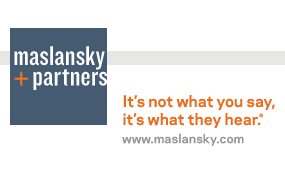Aarti Shah 18 Mar 2019 // 8:06PM GMT

It’s been established that digital innovations have disrupted the conventional crisis playbook. Yet there’s still no clear consensus on what modern issues management should look like — what should change, what remains the same?
“There’s a tendency to focus on crisis if and when something happens,” Keith Yazmir, partner at Maslansky + Partners (pictured) said. Yet, he added, these days “everything is issues management. Brands mislead themselves when they don’t recognize this. Issues management is about knowing your vulnerabilities and how we want to be seen.”
The Holmes Report convened communications and marketing leaders in San Francisco last month as part of its first-ever salon series at the sixth IN2 Innovation Summit. During the Future of Issues Management salon, sponsored by Maslansky + Partners, the conversation explored how the speed, intensity and duration of crises has significantly changed over the past few years.
There’s also more pressure than ever on communications to show business impact. Last year, the Holmes Report conducted a salon during which several participants were noticing a shift in resources away from brand reputation towards marketing tactics that would drive sales. Last month's salon, however, challenged how widespread this practice is.
For instance, Terra Carmichael, VP of global communications at Eventbrite, acknowledged its social media channels have shifted towards becoming an acquisition channel yet communications is still charged with “preserving the brand for the long-term and investing in corporate reputation.”
“It’s still about trust,” said Diana Wong, global communications lead at RSA. “We can’t afford to shift resources to brand marketing for the sake of the brand. Our brand is about reputation and privacy.”
Kleiner Perkins CMO Amanda Duckworth added that from her vantage, “reputation is everything, that’s all we have to sell. It would be ‘short-sighted’ to dial back on branding.”
Yet there are now examples, notably United Airlines or more recently Marriott, of how quickly brands rebound from crises especially in today’s rapidly changing news environment. The velocity at which a damning social media video or audio travels across the Internet has also made brands especially vulnerable to egregious lapses in customer service.
“A data breach can be just as catastrophic as someone being dragged off a plane,” said Will Moss, director of reputation communications at Intel. “Is it more important to respond quickly or in the right way? There’s value in acting authentically and quickly. If you don’t do something to frame the situation someone else will and they will do it without waiting for us and it won’t go well for us.”


































.jpg)


















